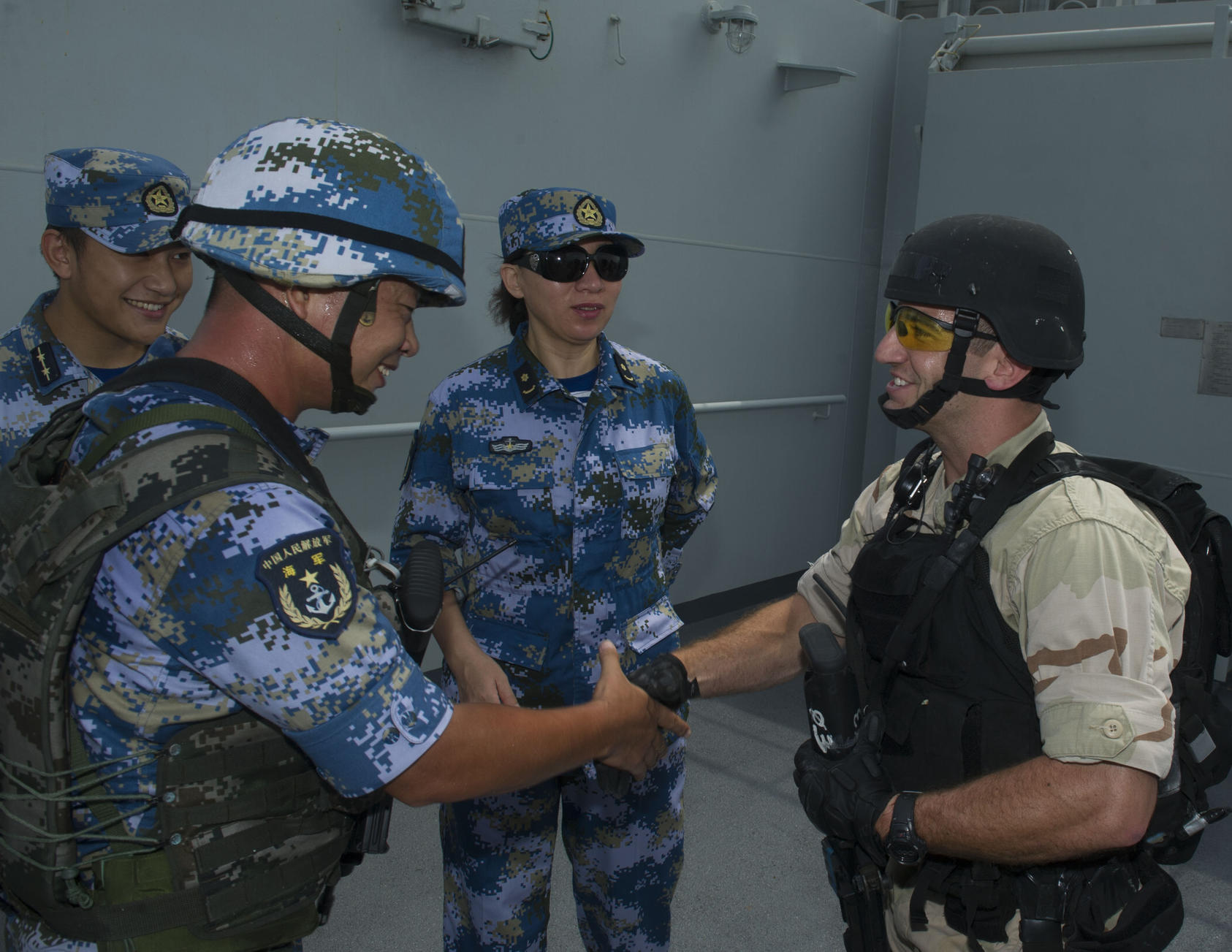U.S. and Chinese leaders have worked with counterparts across Africa to combat a range of security threats on the continent, from Ebola to piracy to instability in Sudan and South Sudan. A recent United Nations Security Council Resolution condemning terrorist attacks and violence in the Lake Chad Basin illustrates that more joint efforts are needed to support Africa’s stability and development. Unfortunately, distrust and skepticism between the United States and China are getting in the way of further progress. But there may be a way to prevent backsliding.

Initial trilateral efforts in Africa have revealed three key lessons for effective cooperation, according to experts in a recent discussion at USIP. First, successful efforts must be African-led and should work through existing African institutions. Second, leadership matters, and the U.S. and Chinese ambassadors in Africa play a critical role in making collaboration possible. Third, engagement must be sustained, holistic, and long-term, rather than ad hoc.
Although both the United States and China want to see an economically prosperous and secure Africa, there are many barriers to closer cooperation. They include competition, lack of transparency, different definitions of “stability,” and bureaucratic stovepipes.
Three ambassadors and an associate director at the Carter Center in Atlanta considered ways to overcome these hurdles in a March 2017 article in Foreign Affairs.
“The goal should be to transform occasional moments of cooperation—such as the shared efforts of China, the United States, and African governments during the Ebola crisis—into what China expert Kurt Campbell has called “habits of cooperation” on those areas where all parties largely agree.”
Campbell and the four authors addressed the point at the USIP event on April 11, held to discuss progress in a three-year project between the institute and the Carter Center, called the Africa-China-U.S. Consultation for Peace. The program is being conducted in coordination with the United Nations Office for West Africa and the Sahel.
In addition to the authors’ recommendations, experts identified other opportunities for collaboration:
- Coordinate humanitarian assistance to the Lake Chad Basin to avoid duplication and gaps.
- Conduct joint research on maritime security in the Gulf of Guinea, including piracy as well as illegal and unreported fishing.
- Strengthen maritime security structures in West Africa, particularly the Interregional Coordination Center in Yaoundé, Cameroon.
- Develop African merchant marines to facilitate trade.
- Address threats to food security and public health.
- Build the capacity of African peacekeepers and establish a reliable source of funding for African Union peace operations.
- Invest in civilian security, governance, economic rehabilitation, effective community-police relations, and the judicial and security architecture in the Lake Chad Basin.
- Align development assistance, infrastructure projects, and economic investment with conflict prevention efforts.
The need for three-way cooperation in Africa remains high. Where direct collaboration is not possible, one alternative might be to pursue complementary policies that still would allow parties to work in parallel toward the same goals, as long as they maintain some openness and transparency.
The United States and China should commit to adding these issues to the new U.S.-China Consultative Dialogue, to ensure these opportunities get the attention they deserve. The challenges facing Africa cannot be ignored just because leaders in Washington and Beijing cannot overcome their mistrust. Instead, the three parties must find creative ways to pursue complementary efforts that will help everyone realize their shared interests.



